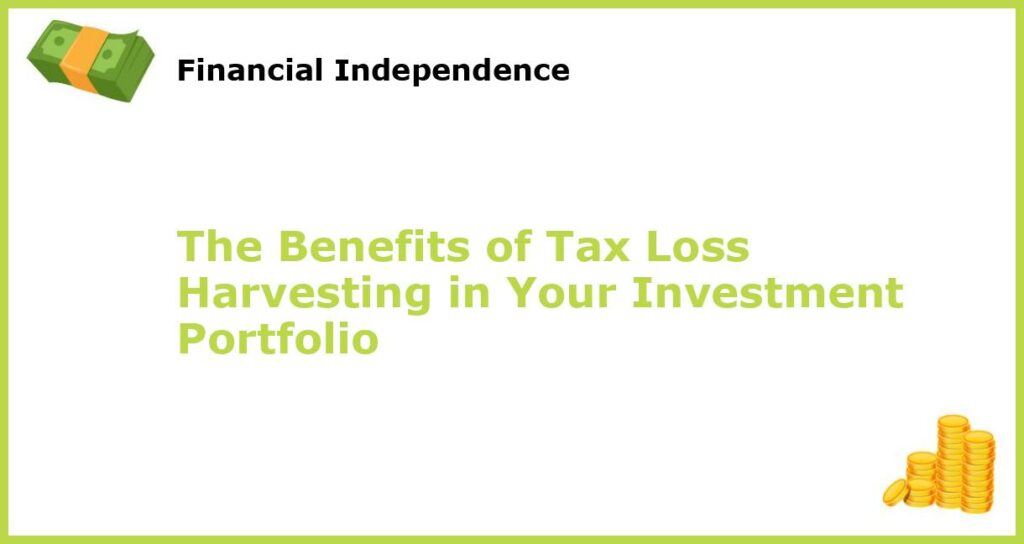Investing can be a great way to grow your wealth over time, but it’s important to be aware of the potential tax implications. One way to minimize your tax liabilities and maximize your returns is through tax loss harvesting. Let’s dive deeper into the benefits of tax loss harvesting and how it works.
What is Tax Loss Harvesting?

Tax loss harvesting involves selling off assets that have lost value in your portfolio in order to offset capital gains taxes. This strategy enables investors to deduct the losses from their capital gains and reduce their tax liabilities. Moreover, the proceeds from the sale can be used for the purchase of similar assets, thereby maintaining the same portfolio while capitalizing on tax benefits.
How Does Tax Loss Harvesting Work?

Tax loss harvesting works by selling securities in your portfolio that have declined in value below the price at which you purchased them. These losses can then be used to offset any gains made by selling other securities at a profit. Furthermore, the losses can be carried forward to future tax years if they exceed the amount of gains made in the current year. By doing this, investors can reduce their tax liability while maintaining the same level of diversification in their portfolio.
Pros of Tax Loss Harvesting

The primary benefit of tax loss harvesting is the reduction of your capital gains tax liabilities. This practice is especially useful in years when you have received significant income from capital gains. Additionally, tax loss harvesting can help maintain the diversification of your portfolio and reduce risk exposure.
Cons of Tax Loss Harvesting
The primary drawback of tax loss harvesting is that it requires careful monitoring and execution to ensure compliance with tax laws. This can be a hassle for investors who do not want to stay on top of market trends and tax regulations. Additionally, if investors do not reinvest the proceeds from the sale of the losing assets into similar securities soon enough, they may miss out on market gains.
When is Tax Loss Harvesting Most Effective?
Tax loss harvesting is most effective in years when you have realized significant capital gains. This can occur in years when the market is doing well, and you have decided to cash out. Tax loss harvesting is most effective when done across a diversified portfolio, as losses in one security can offset gains in another.
How Often Should You Tax Loss Harvest?
How often you should harvest your tax losses will depend on market conditions and any changes within your portfolio. Some investors may only need to do it once per year, while others may need to do it more frequently, depending on the specifics of their financial situation.
What Assets Can Be Tax Loss Harvested?
Investors can harvest tax losses on any asset that has decreased in value below its purchase price. This includes stocks, mutual funds, and exchange-traded funds (ETFs).
Should You Do Tax Loss Harvesting Yourself or Hire a Professional?
Whether to conduct tax loss harvesting by yourself or to hire a professional will depend on your comfort level with tax laws and investment strategies. DIY investors may save on fees, but a professional can provide expertise and guidance on maximizing the benefits of tax loss harvesting.
What Happens to Unused Tax Losses?
Unused tax losses can be carried forward to future tax years to offset future capital gains. There is no limit on how long they can be carried forward.
Is Tax Loss Harvesting Worth It?
For many investors, tax loss harvesting is a valuable tool for reducing tax liabilities and increasing net returns. However, it requires active monitoring and execution to be effective, and it may not be worth it for investors with smaller portfolios. Regardless of your situation, tax loss harvesting is definitely worth considering if you want to optimize your investment strategy.







